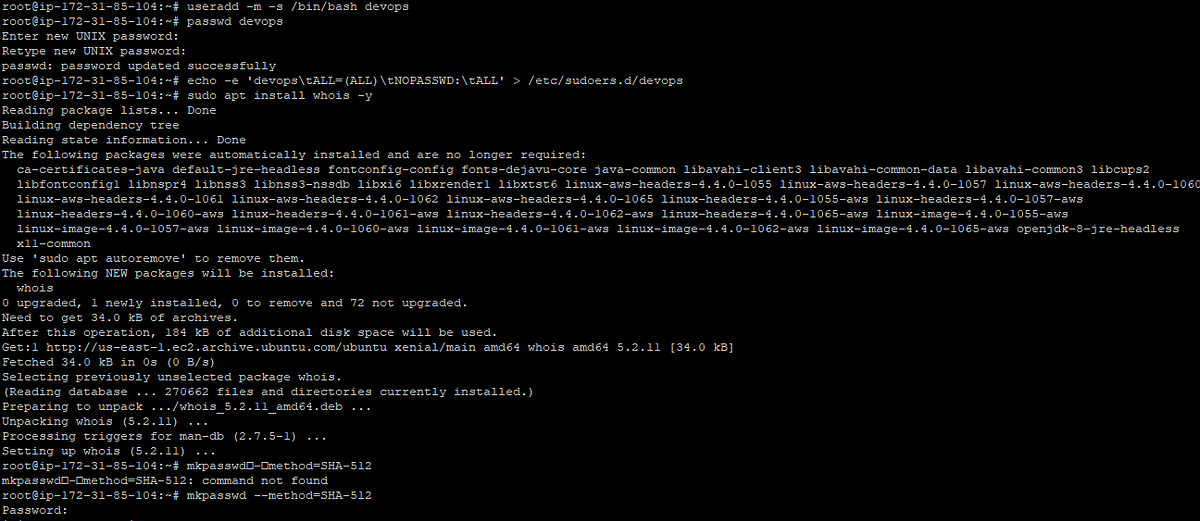Generate Ssh Key Pair Ansible
The PuTTYgen program is part of PuTTY, an open source networking client for the Windows platform.
You must either add a leading zero so that Ansible's YAML parser knows it is an octal number (like 0644 or 01777). Specifies the number of bits in the private key to create. For RSA keys, the minimum size is 1024 bits and the default is 4096 bits. The algorithm used to generate the SSH private key. Create, register and remove SSH keys. If no key was found and no public key was provided and a new SSH private/public key pair will be created and the private key will be returned. Ansible uses the cs library’s configuration method if credentials are not provided by the arguments apiurl.
- Download and install PuTTY or PuTTYgen.
Avast driver updater registration key generator. To download PuTTY or PuTTYgen, go to http://www.putty.org/ and click the You can download PuTTY here link.
- Run the PuTTYgen program.
- Set the Type of key to generate option to SSH-2 RSA.
- In the Number of bits in a generated key box, enter 2048.
- Click Generate to generate a public/private key pair.
As the key is being generated, move the mouse around the blank area as directed.
- (Optional) Enter a passphrase for the private key in the Key passphrase box and reenter it in the Confirm passphrase box.
Note:
While a passphrase is not required, you should specify one as a security measure to protect the private key from unauthorized use. When you specify a passphrase, a user must enter the passphrase every time the private key is used.
- Click Save private key to save the private key to a file. To adhere to file-naming conventions, you should give the private key file an extension of
.ppk(PuTTY private key).Note:
The.ppkfile extension indicates that the private key is in PuTTY's proprietary format. You must use a key of this format when using PuTTY as your SSH client. It cannot be used with other SSH client tools. Refer to the PuTTY documentation to convert a private key in this format to a different format. - Select all of the characters in the Public key for pasting into OpenSSH authorized_keys file box.
Make sure you select all the characters, not just the ones you can see in the narrow window. /ojosoft-total-video-converter-key-generator.html. If a scroll bar is next to the characters, you aren't seeing all the characters.
- Right-click somewhere in the selected text and select Copy from the menu.
- Open a text editor and paste the characters, just as you copied them. Start at the first character in the text editor, and do not insert any line breaks.
- Save the text file in the same folder where you saved the private key, using the
.pubextension to indicate that the file contains a public key. - If you or others are going to use an SSH client that requires the OpenSSH format for private keys (such as the
sshutility on Linux), export the private key:- On the Conversions menu, choose Export OpenSSH key.
- Save the private key in OpenSSH format in the same folder where you saved the private key in
.ppkformat, using an extension such as.opensshto indicate the file's content.
| Parameter | Choices/Defaults | Comments |
|---|---|---|
| client_id string | If not set the environment variable BITBUCKET_CLIENT_ID will be used. | |
| client_secret string | If not set the environment variable BITBUCKET_CLIENT_SECRET will be used. | |
| private_key string | ||
| public_key | The public key. | |
| repository string / required | ||
| state |
| Indicates desired state of the key pair. |
| username string / required |
Generate Ssh Key Pair Ansible Command

Note
Ansible Add Public Ssh Key
- Bitbucket OAuth consumer key and secret can be obtained from Bitbucket profile -> Settings -> Access Management -> OAuth.
- Check mode is supported.
- This module is not guaranteed to have a backwards compatible interface. [preview]
- This module is maintained by the Ansible Community. [community]
Authors¶
- Evgeniy Krysanov (@catcombo)
Hint
If you notice any issues in this documentation, you can edit this document to improve it.